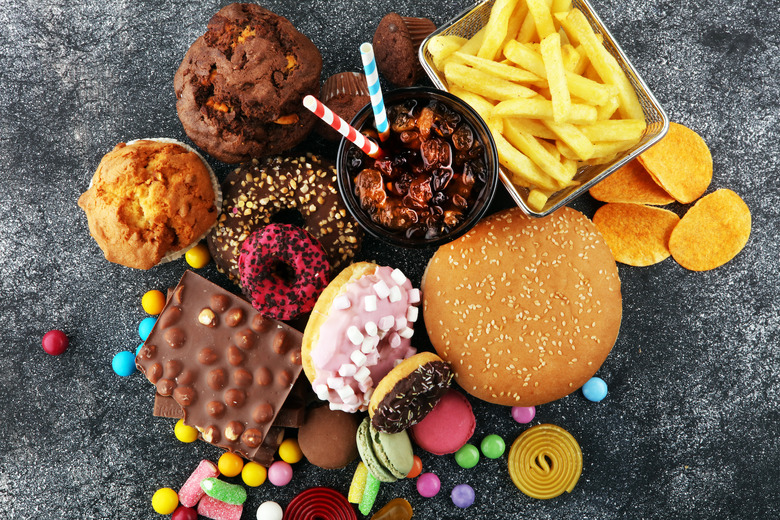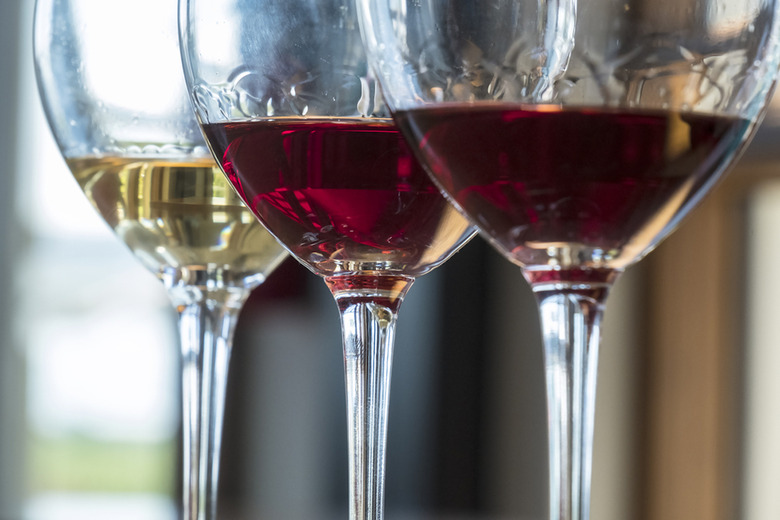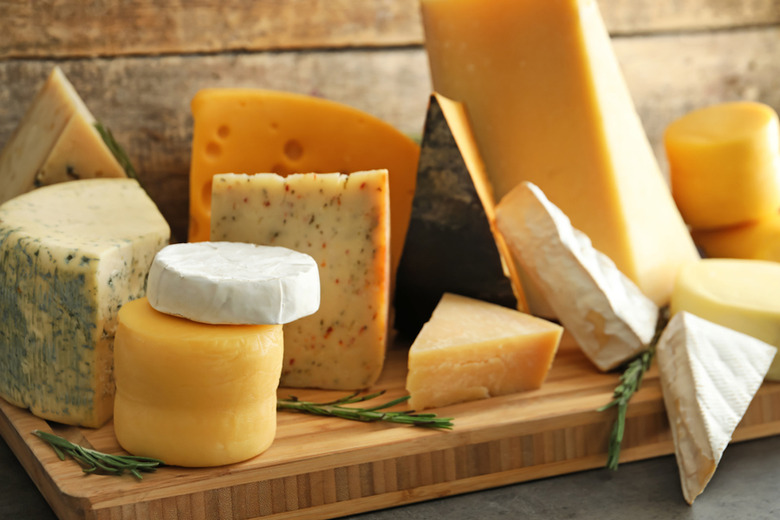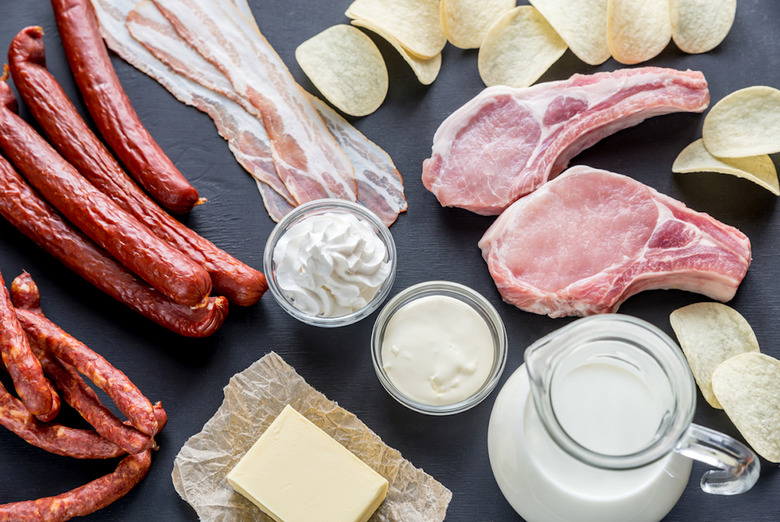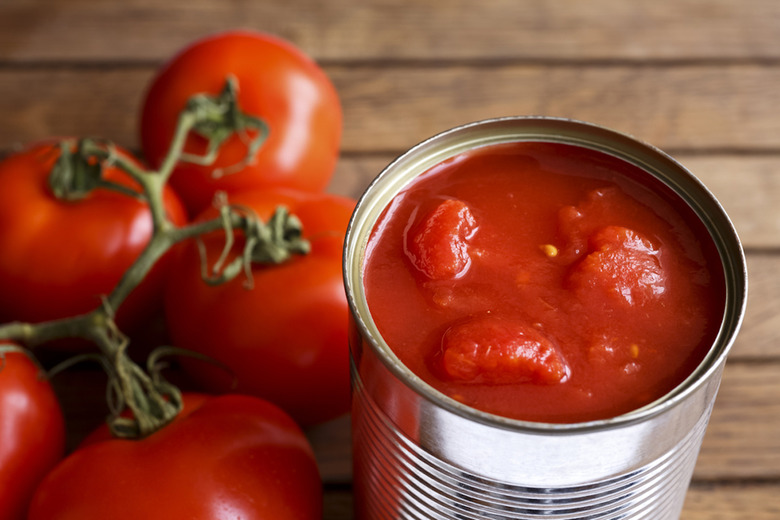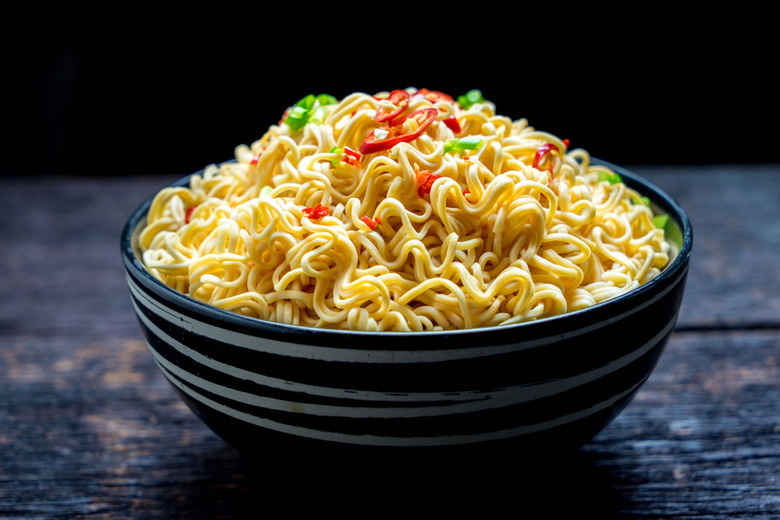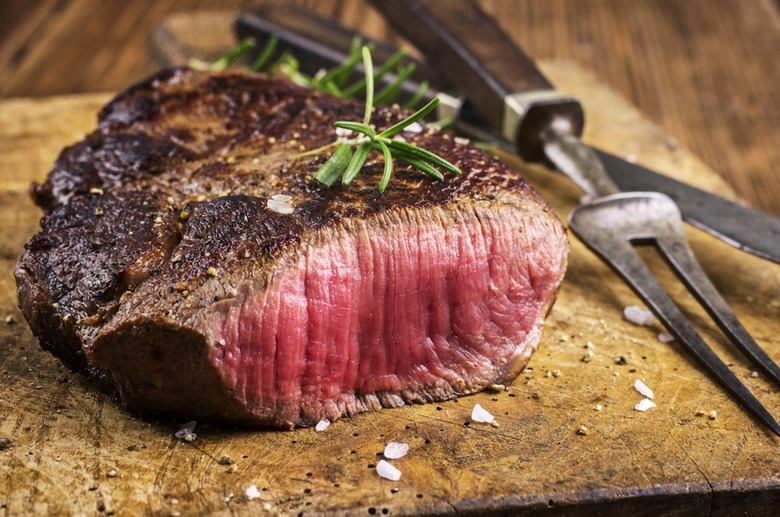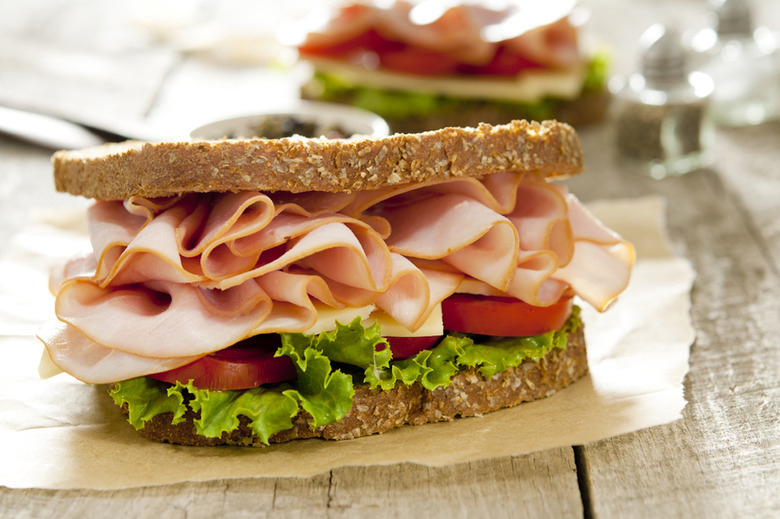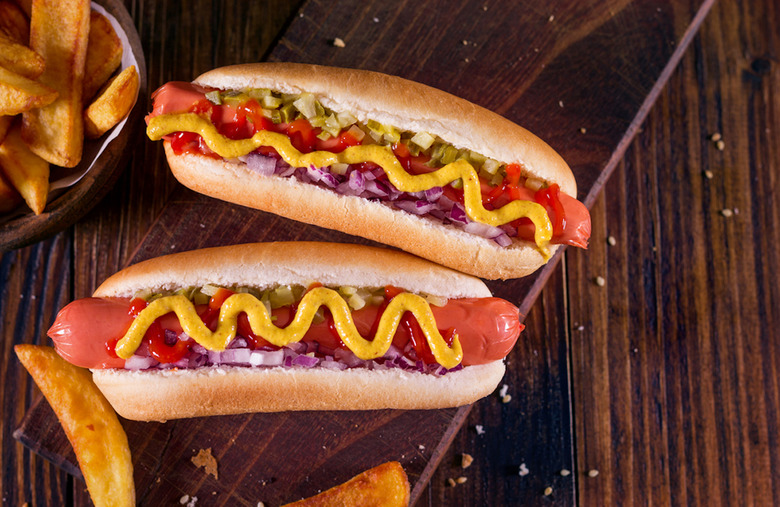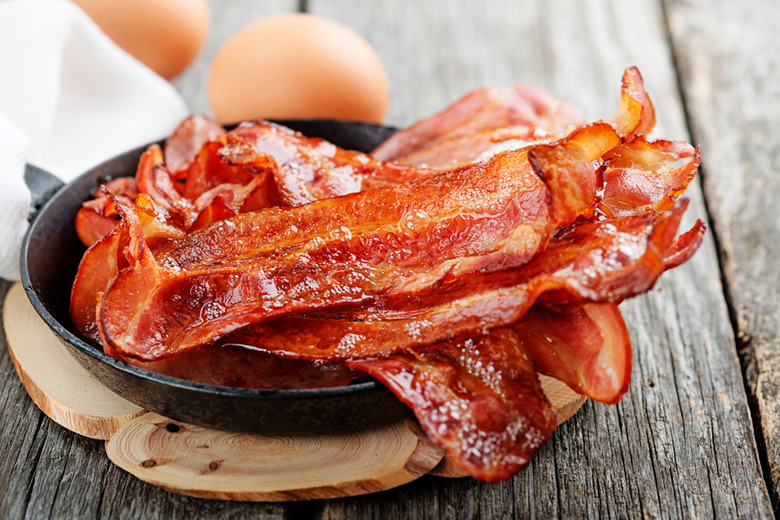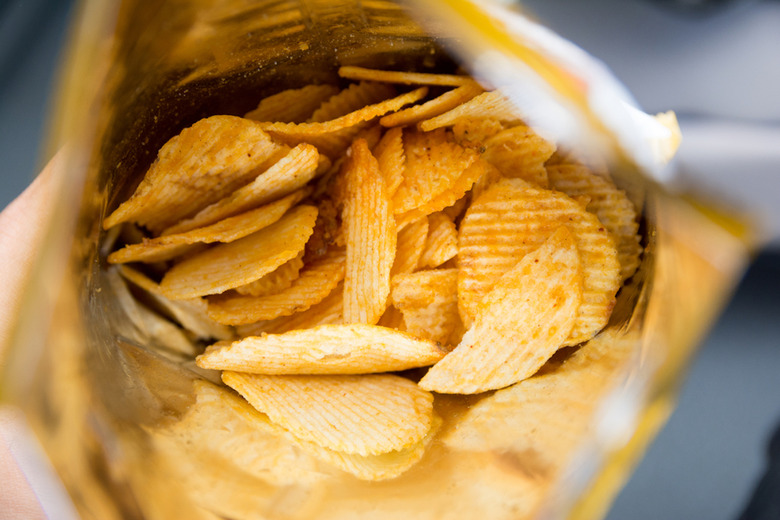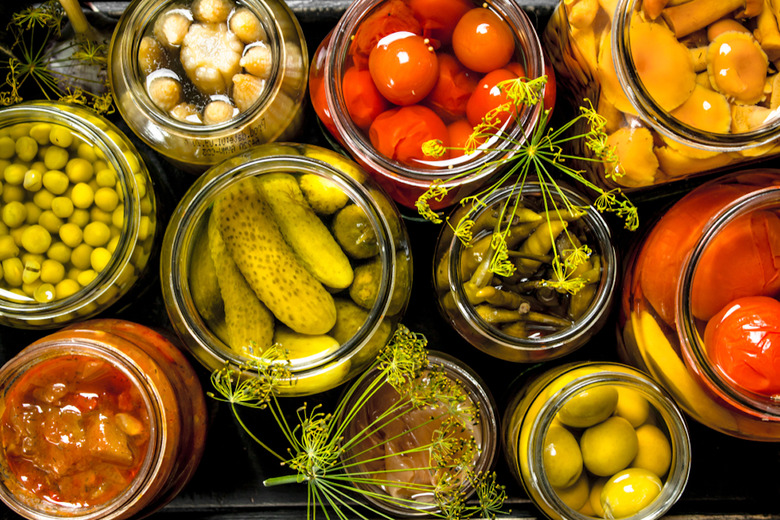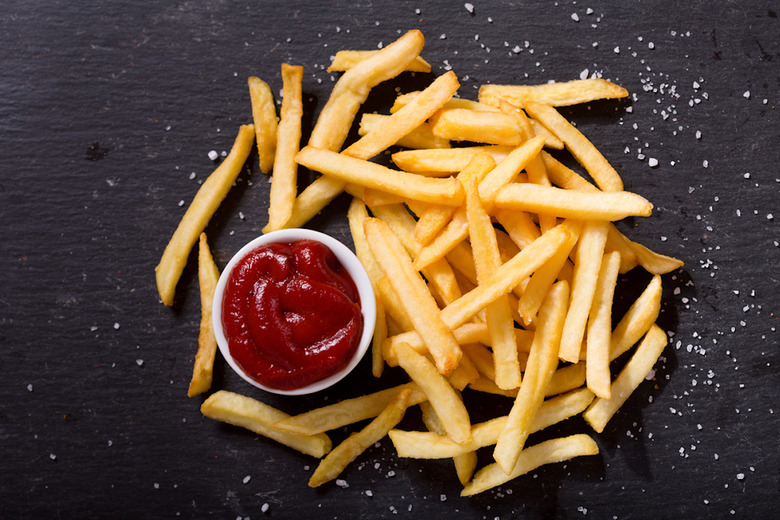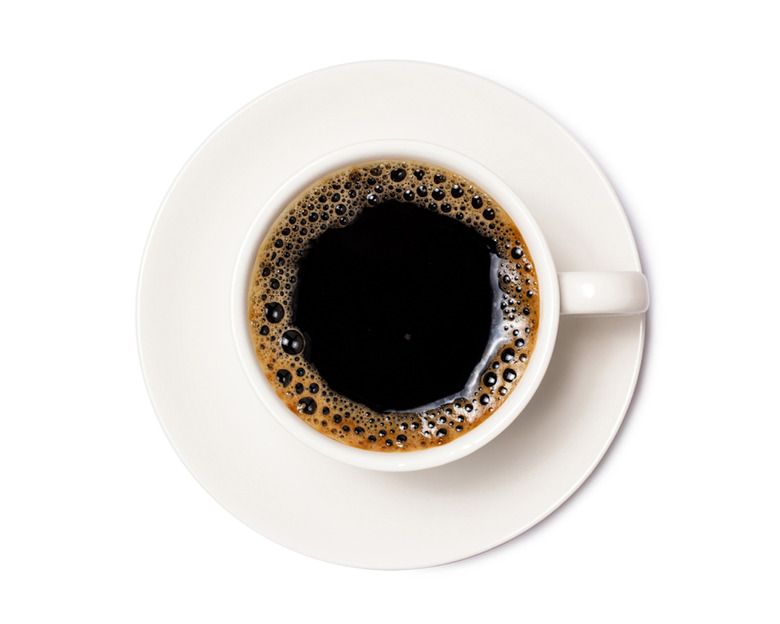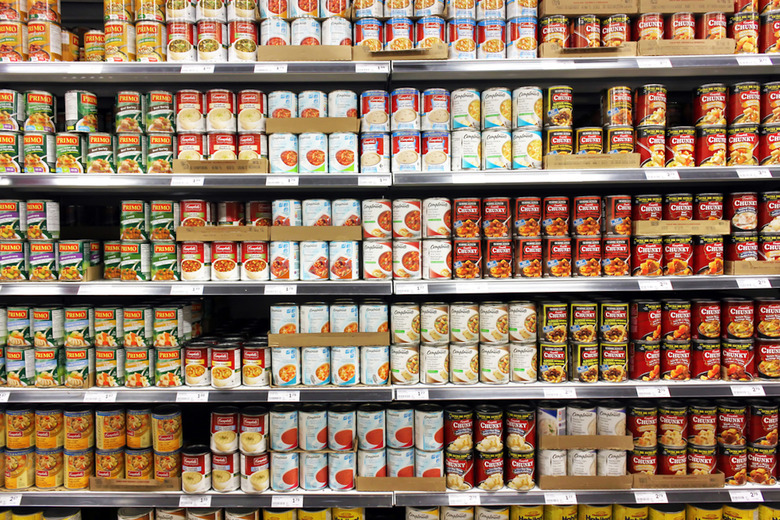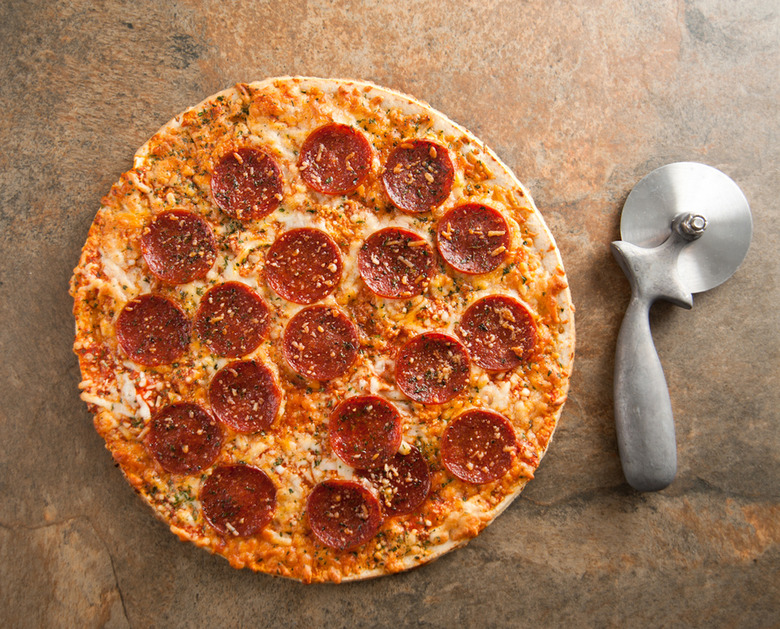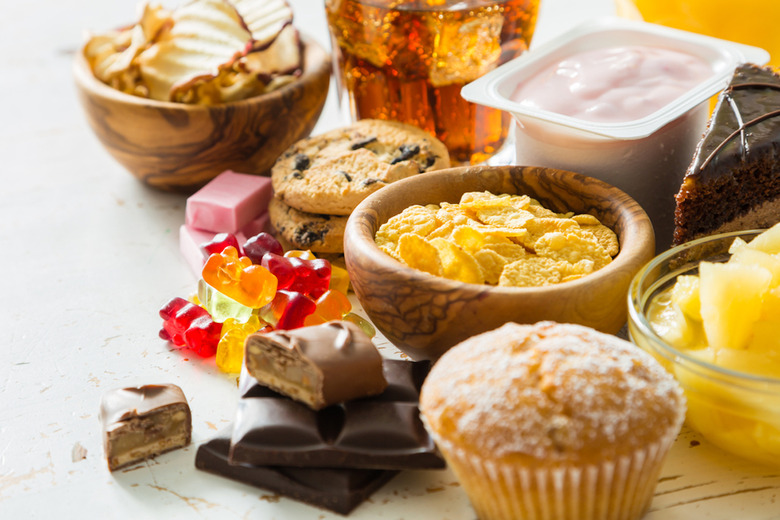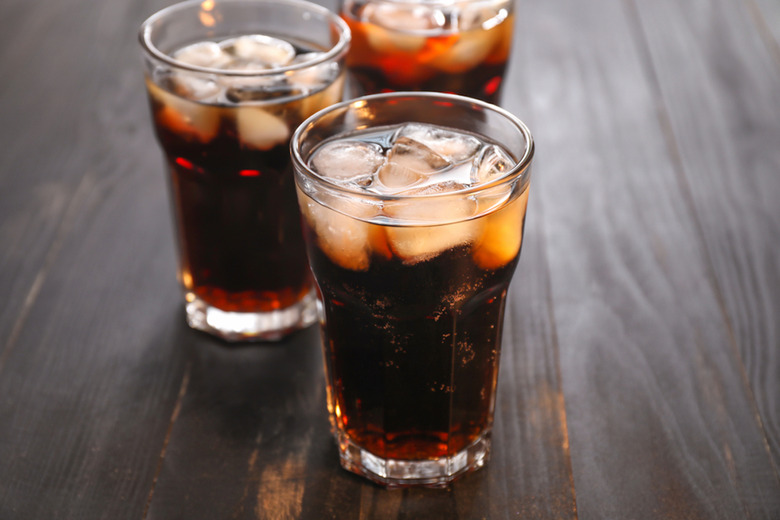17 Foods And Drinks That Are Putting Your Blood Pressure Through The Roof
According to the Centers for Disease Control and Prevention, about 75 million American adults have high blood pressure — that's one in every three. Though medications are available for treatment, a healthy diet is the most effective defense.
A diet high in sodium and fat is thought to increase the risk of high blood pressure, which is a major cause of heart disease and stroke.
Sodium, which primarily comes from packaged, prepared and processed foods, is the substance found in salt that can cause your blood pressure to increase. According to the American Heart Association, when you eat too much salt, extra water is pulled into your blood vessels, increasing the volume of blood in the vessels and putting stress on both them and your heart. The CDC recently released the newest version of a dietary guideline to help Americans make healthier food choices. In it, it recommends that Americans should consume less than 2,300 milligrams of sodium per day. Most of us eat a lot more than that.
If you have high BP, work closely with your doctor to modify your diet to prevent the negative health consequences associated with it. To get you started, here's a list of foods you should definitely be avoiding that are sending your blood pressure through the roof.
Alcohol
According to the American Heart Association, drinking too much alcohol can raise blood pressure to unhealthy levels. The effects can be both long and short term. Consuming more than three drinks in one sitting temporarily increases your blood pressure, while a lifestyle of heavy drinking can lead to a long-term increase. Health professionals recommend limiting your alcohol consumption to no more than two drinks per day for men and no more than one drink per day for women. A drink is one 12 oz. beer, 4 oz. of wine, 1.5 oz. of 80-proof spirits or 1 oz. of 100-proof spirits.
Cheese
Cheese is known to be high in fat and cholesterol, but those aren't the only reasons cheese could increase your blood pressure. Most cheeses are also high in sodium, which elevates blood pressure. Processed cheeses, like Velveeta or those melty cheese singles, are even more prone to have additional fat and salt, so always choose natural dairy products. Velveeta, for example, contains 1,390 milligrams of sodium per 100-gram serving, while a cheddar cheese made with fresh pasteurized milk has 643 milligrams of sodium per the same serving size.
Foods with saturated fats
If you are at risk for high blood pressure, you should avoid foods that are high in saturated fats. Eating too much saturated fat is a major risk factor for heart disease. Foods high in this type of fat include whole milk, cream, fatty beef, pork and butter among others. The American Heart Association recommends aiming for a daily intake of only 13 grams of saturated fat and replacing bad fats with good fats like monounsaturated or polyunsaturated fat — think nuts, nut butters, avocados and fish.
Canned or bottled tomato products
Tomato products with added salt are problematic for people with high blood pressure. Most canned pasta sauces and tomato juices typically have anywhere from 100 to 300 milligrams of sodium per serving, which can be almost 10% of the daily recommendation. As an alternative, you can easily find low or reduced-sodium versions of canned tomato products or use fresh tomatoes, which are more delicious anyway.
Packaged noodles
Packaged noodles take no more than two or three minutes to prepare, making them a frequent choice of both college students and working adults. However, one should be mindful of the excessive amount of salt the seasoning packets contain, especially if dealing with high blood pressure. According to a study published in the journal Nutrition Research and Practice, increased instant noodle consumption was associated with cardiometabolic risk factors, which include high blood pressure. The research was based off participants in South Korea, which has the highest per capita instant noodle consumption in the world.
Red meat
You don't have to eliminate red meat entirely, but definitely avoid eating it every day. According to medical experts at Harvard University, to help combat high blood pressure, you should limit your red meat intake to only one serving a week. And that one serving should be no more than a quarter-pound. Eating red meat is associated with high blood pressure and high blood cholesterol, which in turn increase the risk of heart and cardiovascular disease.
Cold cut meats
Deli meats tend to be high in sodium and contain sodium nitrate — a type of salt used to cure and preserve cold cuts — and are often "enhanced" with saltwater or saline, according to the CDC. For example, one slice of cold-cut ham can have 358 milligrams of sodium. High salt intake can increase the risk of high blood pressure, which is a major cause of heart disease and stroke. Instead of making a sandwich with processed meats, use grilled chicken or tuna
Hot dogs
The ballpark staple is also part of the processed meat category. Hotdogs and sausages should be eaten in moderation. Just one hot dog link contains 380 milligrams of sodium and 12 grams of total fat.
Bacon
It goes without saying that bacon is not a health food. Like deli meats and hot dogs, bacon is also cured with salt. According to the U.S. Department of Agriculture's food database, Tyson Foods bacon, for example, contains 330 milligrams of sodium in just two pan-fried strips.
Chips
It's nearly impossible to eat just a handful of potato chips when a giant bag is in front of you, so this one is difficult, but important if your blood pressure is climbing. Popular chip flavorings like ranch, salt and vinegar, and sour cream and onion will have more salt content. You don't have to cut potato chips out completely, but do limit your servings to 4 ounces a week — if you must — and look for versions with reduced salt.
Pickled vegetables
Similar to cured meats, pickled vegetables also carry a lot of salt because salt is added to them during the pickling process. If you're concerned about your blood pressure, avoid eating dill pickles or other pickled foods like kimchi and sauerkraut and also canned items like olives and capers that are soaked in salt.
French fries
Drive-thru french fries and frozen french fries are worlds apart in flavor, but when it comes to nutritional value, they're pretty much the same — both are loaded with sodium and fat, and not a friend to those with high blood pressure. Just 3 ounces of cross-cut fries contain more than 8 grams of total fat and more than 300 milligrams of sodium.
Coffee
The association between coffee and high blood pressure is a little bit of a gray area. It's true that coffee can cause a temporary but noticeable spike in your blood pressure levels, even if you don't suffer from high blood pressure. The research is still unclear, but according to Harvard Health, it is proven that coffee raises blood pressure in people who are not used to it, but not in regular coffee drinkers. If you have high blood pressure, it's best to ask your doctor whether you should limit coffee or stop drinking it entirely.
Canned soups
Canned soup is the fastest meal for a cold rainy day, but it's far from ideal for people with high blood pressure. A can of vegetable soup can have as much as 890 milligrams of sodium per half-cup serving, whereas one with chicken and pasta can have 979 milligrams per serving.
Frozen pizza
Frozen pizza can be incredibly unhealthy for people with high blood pressure. One serving of a frozen pizza can contain 700 milligrams of sodium or more depending on the toppings.
Refined sugars
There's a recurring debate about whether sugar or salt is the biggest culprit when it comes to an unhealthy heart. The argument for sugar lies in the many negative effects refined sugar has on the body, and in particular, on our metabolic profile. According to research published in the journal Open Heart, there's an established link between sugar and hypertension as well as high cholesterol and excess weight. Soda and other sweetened drinks are the biggest sources of refined sugars, followed by cookies, cakes, pastries, ice cream, frozen yogurt, candy and ready-to-eat cereals.
Soda
A 2016 study conducted by researchers from the Department of Social and Applied Nutrition at the State University of Rio de Janeiro showed that the consumption of soft drinks was associated with increased blood pressure, and was further increased by drinking diet sodas. The study was conducted on adolescents, which goes to show how the negative effects of soda can impact any age group. Along with high blood pressure, there are plenty of other reasons why soft drinks and diet sodas are bad for you.
More From The Daily Meal:
So-Called 'Healthy' Foods You Should Avoid
Guilty Pleasure Foods That We Won't Apologize for Loving
